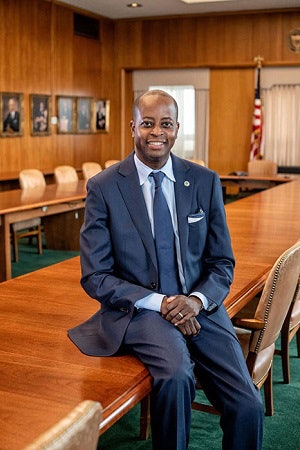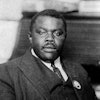Howard University, in the nation’s capital, will now hold its fall semester entirely online for undergraduates and will not house students. The decision announced late Friday afternoon is a reversal of plans to offer students the option of in-person and virtual classes. It also signals the angst and gravity that campus leaders are facing as they decide how or if they will re-open their institutions as the coronavirus pandemic rages.
 Dr. Wayne A. I. Frederick
Dr. Wayne A. I. Frederick“After consultation with our public health faculty experts, District of Columbia officials, University leadership, and monitoring the status of the COVID-19 pandemic locally, regionally and nationally, we have made the very difficult decision to move all undergraduate courses for the Fall 2020 semester fully online, and non-residential. The residence halls will be closed, with the exception of The Axis, which is apartment living,” said Dr. Wayne A. I. Frederick, Howard’s president, in a statement to his students and the campus community.
His announcement comes on the same day that Dr. Deborah Birx, the White House’s coronavirus response coordinator, included Washington, D.C. on a list of metro areas where the number of coronavirus cases is quickly trending back up.
Howard is not alone. On Thursday, Johns Hopkins University in Baltimore, Maryland, also did a surprising about face, announcing that it, too, would offer its fall semester entirely online. Just a week ago, in an upbeat but cautious announcement, Frederick told students that the university’s comprehensive re-opening plan had received a final greenlight from District of Columbia government officials.
But at the same time, Frederick said, “elements of that plan” also “highlighted the challenges that we would face in bringing a significant number of students safely back to campus.” For instance, returning students would have been required to present negative COVID-19 test results within seven days prior to coming to campus. The university officials noted that was something that many students and families indicated they weren’t able to do.
Howard, which has a teaching hospital on campus, will operate its own “internal COVID-19 laboratory which will be fully operational next week,” Frederick stated. “However, the 200 rooms that we have identified as isolation rooms for any students who have a positive test result could quickly be filled if we are unable to identify positive cases prior to their arrival on campus.”
For Frederick — who is also a practicing physician — the driver in this and other decisions about the fall semester was the health and safety of Howard’s students, faculty and staff.
“This has remained the most significant consideration,” he said. “Nationally, we continue to see COVID-19 cases rise, with an increasing infection rate among young people. We have also grown more painfully aware of the disparate impact of COVID-19 infections, hospitalizations and deaths among people of color, with particular devastation on the Black community.”
The decision to go virtual, Frederick added, also impacts graduate and professional students at Howard: “Many of our graduate and professional programs and courses will also be provided online, either primarily, or fully. While many of our health professional didactic courses will be online, the clinical training components will be conducted face-to-face, secondary to accreditation and licensure requirements.”
Frederick stopped short of looking ahead to how Howard will respond when the spring 2021 semester rolls around.



















